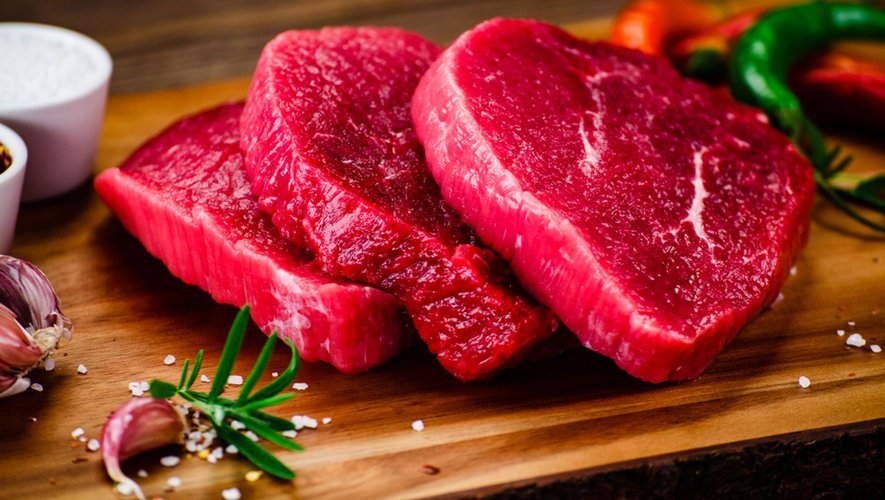In a recent report by the Court of Auditors calling for a reduction in cattle herds in France, the authors mentioned the fact that a third of French people still consume too much red meat. Which is not without risk to health. What are these risks? And how to reduce its consumption?
Is red meat bad for your health? A tricky question whose answer is greatly influenced by the type and amount of meat we eat, as well as how often we consume it.
Because red meat is not an enemy. We know that it is particularly rich in iron, vitamin B12 and selenium, all nutrients that can be lacking in poorly planned vegetarian or vegan diets. But excessive consumption increases the risk of colorectal cancer, cardiovascular disease and diabetes. These effects are thought to be partly explained by the fact that meat is full of lipids, especially saturated fatty acids. High-temperature cooking may also have a role to play, releasing carcinogenic chemicals.
This is why most European dietary recommendations recommend limiting the amount of red meat and alternating with other sources of protein, including fish, white meat, eggs and vegetable proteins such as legumes.
1 in 3 French people eat too much red meat
The World Cancer Research Fund thus recommends a consumption of red meat of less than 300 g per person per week. The Ministry of Health, in its National Health Nutrition Plan (PNNS), recommends, for its part, a consumption of less than 500 g per week.
Problem, the Health Security Agency (Anses) believes that “28% of adults still consume more than 500g of red meat per week“.
So how can we adopt more virtuous individual behaviors, following the recommendations of health authorities?
- One of the main pillars of a healthy and balanced diet is variety. So vary your protein sources and make sure red meat is less than a quarter of the meat you eat on weekdays;
- Also pay attention to portions. “As a rule of thumb, a serving of meat should be about the size of the palm of your hand”insists the European Food Information Council;
- Replace half the meat on your plate with vegetable proteins such as legumes (beans, lentils, chickpeas, etc.);
- Challenge yourself to have a meal or a day without meat.

